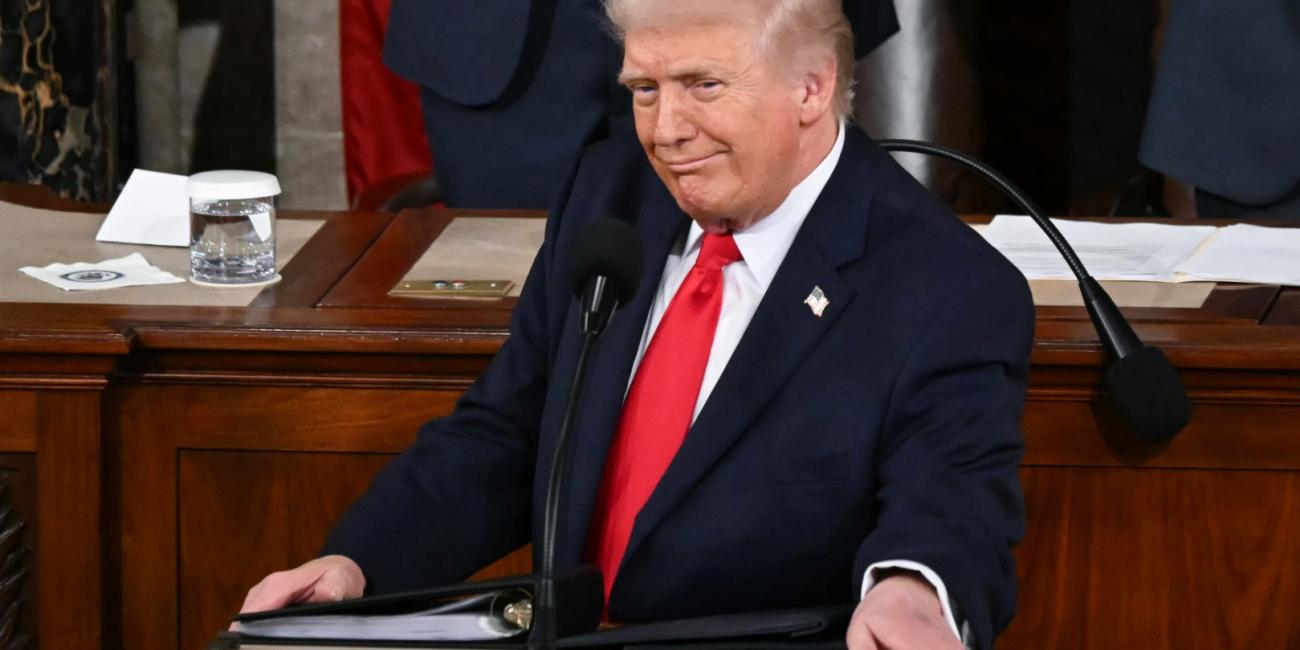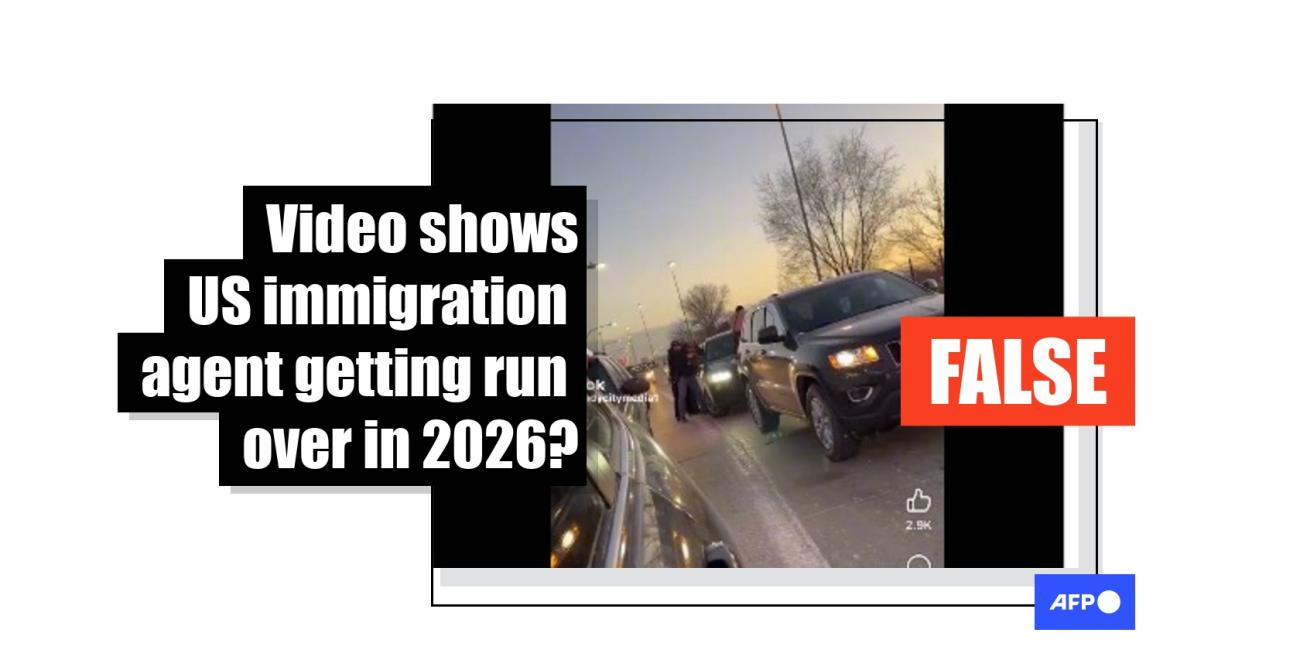
Posts mislead on Trump, Biden moves to lower insulin prices
- This article is more than two years old.
- Published on April 25, 2023 at 23:29
- 4 min read
- By Marisha GOLDHAMER, AFP USA
"President Trump cut insulin to $35. Boy Biden came in and did away with price cut. Now he's reinstating it like he really did something, what a skank," says a Facebook post published March 7, 2023.
The post includes a video, reposted from TikTok, featuring clips of both Trump and Biden discussing moves to cap the cost of insulin. The clip amassed tens of thousands of views and was also shared on Instagram.

Insulin is a life-saving medicine that more than seven million Americans take to manage their diabetes. The drug's cost has risen over the past decade -- with prices far outpacing inflation, according to Yale University researchers.
The video circulated online after three major insulin manufacturers, Eli Lilly, Sanofi and Novo Nordisk, promised in March 2023 to lower prices. Biden touted the announcement from Eli Lilly in a March 1 statement.
Both Trump and Biden took steps to limit out-of-pocket costs for insulin, as did policymakers and legislators at the state and federal levels. But the posts mislead in claiming that Biden reversed Trump's actions.
What Trump did
The federal government offers health insurance to Americans aged 65 and older, as well as those with certain disabilities, through Medicare. One voluntary benefit, Medicare Part D, helps cover the cost of prescription drugs.
In May 2020, Trump announced the creation of a program in which some Medicare Part D prescription drug and Medicare Advantage plans agreed to voluntarily cap out-of-pocket insulin costs at $35 for a month's supply.
"The voluntary nature of this program meant that it was dependent on plans to participate or not," said Juliette Cubanski, deputy director of the program on Medicare policy at KFF, a health policy research organization. "And then for folks on Medicare who use insulin, the only way that they could benefit from this program is if they actually were enrolled in or switched into one of the plans that chose to participate."
Cubanski said April 21 that the benefit was not included in all Medicare Part D plans. The cost cap went into effect in 2021 and was unchanged when Biden took office.
"I think it's fair to give the Trump administration credit for establishing this demonstration program within Medicare Part D." Cubanski said. "I think it's also fair to give the Biden administration credit for pushing Congress to move forward on prescription drug policy."
What Biden did
The Inflation Reduction Act (IRA), which Biden signed into law in August 2022, requires all Medicare Part D plans and certain Medicare Advantage plans to eliminate the deductible for "covered insulin" and cap the co-payment at $35 per month. The measures went into effect January 1.
"What's happening with the Inflation Reduction Act is an expansion of the Trump administration's Part D model, and an improvement in the sense that it's no longer just a voluntary program, but required of all Part D plans," Cubanski said.
There are also policies that "require drug companies to pay a rebate if they raise their prices for certain drugs faster than the rate of inflation," according to the Centers for Medicare and Medicaid Services.
Cubanski said drug companies offering to lower prices is a response to bipartisan efforts to cut costs and "a way for these companies to avoid owing the government millions of dollars in the form of rebates because they have been increasing their prices faster than inflation."
Unimplemented executive order
Claims that the Biden administration rescinded a Trump-era rule that lowered insulin prices are misleading.
Trump in July 2020 signed an executive order that aimed to cut drug costs for individuals served by Federally Qualified Health Centers (FQHC) -- about one in 11 Americans, including homeless and vulnerable populations.
The centers were already providing free or discounted drugs to their low-income clients and Trump's order aimed to expand coverage to those with slightly higher incomes.
But the move faced criticism for failing to give FQHC more money to cover these benefits. More than 100 members of Congress signed a September 20, 2020 letter calling for the rule to be repealed or not enforced.
The order was still making its way through the Department of Health and Human Services rulemaking process when Biden took office in January 2021. A Biden memo then froze all of Trump's actions that had not yet been implemented.
The order was reevaluated, and on October 1, 2021, the Health Resources and Services Administration rescinded it "due to the excessive administrative costs and burdens that implementation would have imposed on health centers."
In summary: Trump's order was overturned. But no one had seen cost savings as it was never implemented -- and the number of patients who might have received discounts is far fewer than those who received aid through his voluntary Medicare program.
Lowering costs for all
Neither Trump's efforts nor the IRA extended insulin cost caps to people with private insurance plans or those who are uninsured, although some may benefit from measures announced by pharmaceutical firms.
Several states have price ceilings of $35, $50 or $100. But two-thirds of workers are covered by private insurance plans that fall outside the scope of state laws, according to Krutika Amin, associate director for the Affordable Care Act program at KFF.
In light of uncertainty about the voluntary drug company measures, Congress is considering several bills that aim to extend the $35 insulin price cap to anyone with private insurance.
"Studies have shown that any out-of-pocket cost sharing, particularly for lower-income people, can be prohibitive," Amin said.
Copyright © AFP 2017-2026. Any commercial use of this content requires a subscription. Click here to find out more.
Is there content that you would like AFP to fact-check? Get in touch.
Contact us




